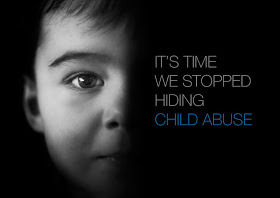Cate Russell-Cole's Blog, page 43
February 25, 2013
Spiritual Gains Through Journalling

Photo Copyright Sam Mugraby, http://www.photos8.com
I have always had a very strong spiritual side to my life. After I wrote the “Write Your Life Story” memoir and journal writing course, I took that material, adapted it, and placed it in a practical, Christian workshop on prayer. It has now been released as an e-book on Amazon.com. “Prayer Journal Workshop“ has been designed to encourage you to start and maintain your own prayer journal: a way of praying on paper.
Prayer is one of the aspects of the Christian life that everyone struggles with! We know we should… we try and make time and often we fail to live up to the goals we have set ourselves. Trying to get into the swing of praying, can feel as elusive as trying to capture a rainbow in a bottle. I have been through many battles with prayer. I am not a formal person, and a formal prayer time just doesn’t work with, or appeal to me at all. No matter what I did, I couldn’t get motivated to pray properly. One day, the guilt drove me to ask God for help. God placed a passion on my heart for prayer that has been a and companion ever since. Once I realized that I could just be myself, I enjoyed talking to God. I was able to develop an enthusiasm for prayer. Being a journal keeper from way back, I sometimes find I prefer talk to God on paper. I can express what I am feeling better; it helps me work through the fuzziness in my head; and the act of writing helps me concentrate.
A prayer journal is just like any other kind of journal. You set aside some time every day to write about what is happening in your life. What makes your prayer journal more special than any other kind of diary or journal, is it is written to the Lord: one long prayer. If you have trouble getting up early to pray, or find it hard to close your eyes and try to stay in focus, maybe a prayer journal will help you. The act of writing will keep you centred on what you are doing. It isn’t formal, but it can be if you want it to. It can also contain your deepest thoughts, feelings, hopes and dreams. You can write it in the same way you would write a letter to a friend; or along the same lines as a conversation you would have with someone you can trust and confide in. God is interested in every aspect of our life, big and small, silly or solemn. A prayer journal is a way to track where you have grown and been blessed, as you read back through the pages.
 If everyone was to write a prayer journal, you would never find two the same. We all relate to God in different ways. Some people call Him “Master“, some “Dad,” some have pet names. Some will tell God about their day: what worries them, they may write poems of praise, or copy down Scriptures that reflect how they feel. In a prayer journal you are free to relate with God however you do best. You can praise Him, ask Him questions about what to do, or things you don’t understand. You can place your prayer requests down in writing for people you know in need, which can also help you to remember to pray for them again in coming days.
If everyone was to write a prayer journal, you would never find two the same. We all relate to God in different ways. Some people call Him “Master“, some “Dad,” some have pet names. Some will tell God about their day: what worries them, they may write poems of praise, or copy down Scriptures that reflect how they feel. In a prayer journal you are free to relate with God however you do best. You can praise Him, ask Him questions about what to do, or things you don’t understand. You can place your prayer requests down in writing for people you know in need, which can also help you to remember to pray for them again in coming days.
Some people like to read devotions every day and write down what they learnt, or how it affected them. A prayer journal is also a great place for this. Others like to take their prayer journal to church or Bible Study, and jot down the points they want to remember. What you do and don’t want to include, is up to you and the Lord to decide together. The main idea is to be open, honest, and to set aside that time as a part of your time with God.
If you are struggling with prayer, consider getting yourself a prayer journal and see if it will make a difference in the way you relate to God. You may find it’s easier to spend time praying on paper than you could praying before. Whatever your experience, my prayer is that you will be blessed, and that it will be a tool to draw you nearer to the Lord.
If you would like to work through a structured and more comprehensive guide to prayer journalling, please buy the e-book from Amazon.com. It includes prompts and other additional helpful resources. The book is $2.99 and available worldwide.
This article / blog post is Copyright Cate Russell-Cole 2012. All rights are reserved Internationally. You may not reproduce it in any form, in part of whole, without Cate’s prior written permission. That includes usage in forms such as print, audio and digital imaging including pdf, jpg, png etc. A fee may be requested for re-using her work if it is for a commercial venture. Link sharing and Pinterest pins are most welcome as long as Cate is the attributed Author.
No images on this blog may be copied, captured, or altered for your own purpose without the consent of the originating owner. Where images are marked as being iStockphoto.com images, they are paid for and licenced to Cate for use on this blog. If you take them, iStockphoto.com has the right to take legal action against you for Copyright Infringement.
Please see the Blog Content and Image Copyright page of this blog for further information in regards to Guest Posts, other images, Cate’s checks on infringements and Liability.
Filed under: Life Story / Memoir Tagged: Amazon, challenge, Christian, ebook, faith, goals, growth, ideas, inspiration, journal, passion, prayer, problem solving, resource, spiritual spirituality, success, Write Your Life Story, writer, writing








February 24, 2013
Writing Rocket Fuel: Author Quotes, Allen Tate
 A poem may be an instance of morality, of social conditions, of psychological history; it may instance all its qualities, but never one of them alone, nor any two or three; never less than all.
A poem may be an instance of morality, of social conditions, of psychological history; it may instance all its qualities, but never one of them alone, nor any two or three; never less than all.
In a manner of speaking, the poem is its own knower, neither poet nor reader knowing anything that the poem says apart from the words of the poem.
Serious poetry deals with the fundamental conflicts that cannot be logically resolved: we can state the conflicts rationally, but reason does not relieve us of them.
Experience means conflict, our natures being what they are, and conflict means drama.
Filed under: Rocket Fuel Tagged: Writing Rocket Fuel








February 21, 2013
Advanced Editing Resources
The next two videos contain good advice from Editing Hacks. They take patience and concentration to listen to, but the advice is invaluable! Also shows you how to give others feedback if you’re editing their work.
Filed under: Writing Tagged: author, books, edit, editing, fiction, goals, proofread, resource, support, writer, writing








February 19, 2013
Written Acts of Kindness Award: Lorrie Servati from Nathan’s Voice
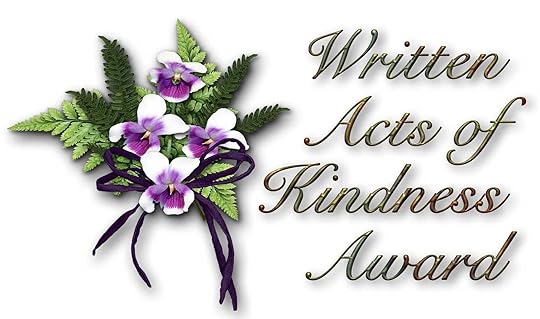
While this is a writing blog, every so often a must-share awareness and education writer comes along. It’s my pleasure today to give the Written Acts of Kindness Award to this special must-share blogger Lorrie Servati from Nathan’s Voice.
Nathan’s Voice was nominated as one of the “Top 10 Autism Blogs of 2012 and I can see why. Lorrie Servati has a nine year old son who was diagnosed with autism spectrum disorder. She is actively involved with the AutismOKC.org support group and regularly writes posts about autism which I pass on through Triberr. You can find Nathan’s Voice on Twitter @NathansVoice or visit the blog at: http://nathansvoice.blogspot.com.au.
 Lorrie, please take this badge below and use it as you wish. The rules for passing this Award on are very simple:
Lorrie, please take this badge below and use it as you wish. The rules for passing this Award on are very simple:
You are welcome to give it out as many times as you like, but it is only to be given to a maximum of one person per blog post. If you wish to give multiple rewards, please space the blog posts by at least a week so the sincerity is maintained.
Introduce the person; say how they encourage, help or inspire you; then link to their work and/or social media profiles. There may be a specific post you wish to link to which helped you. It’s up to you.
Please publicise your award post to Twitter or Google Plus using the hashtag #writtenkindness so that others can find and follow the award winners. You are also welcome to add your Award recipient/s to the Hall of Fame which is on this link.
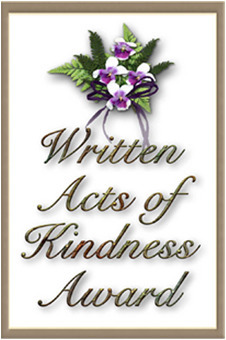

Filed under: Awards Tagged: Autism, Nathans Voice, Written Acts of Kindness Award








February 18, 2013
Learning Curve: Editing and Publishing
The Writer’s Coffee Shop contacted me early last year and asked if I would be interested in writing a novel. They had seen some of my online stories, one of which had become surprisingly popular. Those online stories were the only writing I have ever done. I have no formal training, not even an online course, and so it was a matter of learning to be a writer as I went, making mistakes and trying to learn from them.
The editing process taught me the most. I had two different editors, and both of them had something different to teach me. Most of the time, authors are assigned one editor who continues working with them in their next books, but scheduling issues prevented me from having the same team on the second book. It was such a great learning opportunity I told them I would be okay with it if they wanted to assign a new editor to me for the third.
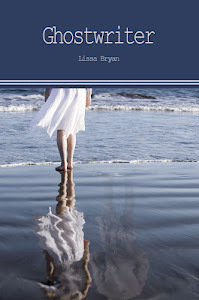 I used to correspond with a published author. Her writing advice was the best I have ever been given: “Every scene, every sentence, every word, must drive the plot forward. If it doesn’t move the plot or reveal something important about the characters, cut it. If you can cut it without impacting your novel, it’s just dead weight, dragging your story down.” It is not easy to do. Even with that advice in mind, there were “dead weight” scenes in my manuscript I didn’t want to cut. I tried to make excuses for them, but in the end, I had to admit they served no real purpose, no matter how much I liked them. This one of the things a good editor does for you: gently, but firmly forces you to see where you’ve gone off-track.
I used to correspond with a published author. Her writing advice was the best I have ever been given: “Every scene, every sentence, every word, must drive the plot forward. If it doesn’t move the plot or reveal something important about the characters, cut it. If you can cut it without impacting your novel, it’s just dead weight, dragging your story down.” It is not easy to do. Even with that advice in mind, there were “dead weight” scenes in my manuscript I didn’t want to cut. I tried to make excuses for them, but in the end, I had to admit they served no real purpose, no matter how much I liked them. This one of the things a good editor does for you: gently, but firmly forces you to see where you’ve gone off-track.
One of the first things my editor did was send the manuscript back to me with all of the uses of the word “that” highlighted. “That” is one of the most over-used words in the English language. If the sentence makes sense without it, cut it. I was able to trim out an embarrassingly large number of them.
My second crime against literature was my passionate love for adverbs. Stephen King says the road to hell is paved with them, and he is right. They often tie into that old saying, Show, don’t tell, which was another struggle of mine. It is the difference between writing, “He paced angrily,” and “He paced with his hands clenched, his eyes narrowed and glittering.” The first tells us what he is feeling, the second shows us his emotional state through his body language.
It is part of learning to trust your reader. There’s an old story, likely apocryphal, Hemmingway bet a friend that he could write an entire story in just six words. He won the bet with this: “For sale: baby shoes, never worn.” With those six words, he gives the reader a full picture, because your mind supplies the necessary details: the crushed hopes of a bereaved family in a dire financial state. Sometimes, the most powerful words are those left unwritten.
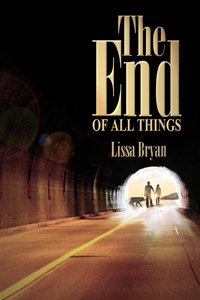 Some of these lessons I learned only in retrospect, but writing is a lifelong journey. I can’t regret my mistakes, because they were valuable lessons. “We’re all apprentices in a craft where none is truly a master,” as the saying goes. I cannot wait to see what I will learn next.
Some of these lessons I learned only in retrospect, but writing is a lifelong journey. I can’t regret my mistakes, because they were valuable lessons. “We’re all apprentices in a craft where none is truly a master,” as the saying goes. I cannot wait to see what I will learn next.
Contact and Follow Lissa:
Blog: http://lissabryan.blogspot.com
Twitter: https://twitter.com/LissaBryan
Facebook: http://www.facebook.com/lissa.bryan
GoodReads: http://www.goodreads.com/author/show/5442345.Lissa_Bryan
Buy: http://ph.thewriterscoffeeshop.com/authors/detail/42
http://www.amazon.com/Lissa-Bryan/e/B009N6CFTQ
https://itunes.apple.com/us/book/ghostwriter/id560564245
This blog post is Copyright Lissa Bryan 2013. All rights are reserved Internationally. You may not reproduce it in any form, in part of whole, without the author’s prior written permission. That includes usage in forms such as print, audio and digital imaging including pdf, jpg, png etc. A fee may be requested for re-use if it is for a commercial venture.
Filed under: Guest Post, Writing Tagged: author, books, discovery, editing, fiction, goals, growth, inspiration, learning, Lissa Bryan, novel, problem solving, publishing, resource, success, writer, writing








February 17, 2013
Writing Rocket Fuel: Author Quotes, Madeleine L’Engle
 Artistic temperament sometimes seems a battleground, a dark angel of destruction and a bright angel of creativity wrestling.
Artistic temperament sometimes seems a battleground, a dark angel of destruction and a bright angel of creativity wrestling.
You have to write the book that wants to be written. And if the book will be too difficult for grown-ups, then you write it for children.
We can’t take any credit for our talents. It’s how we use them that counts.
Inspiration usually comes during work, rather than before it.
With each book I write, I become more and more convinced that the books have a life of their own, quite apart from me.
Filed under: Rocket Fuel Tagged: Writing Rocket Fuel








February 16, 2013
Written Acts of Kindness Award: Beyond Survivor

Having been a social worker and having far too many friends who have been through sexual abuse, this is another must-share blog whose posts I regularly pass on via Triberr and Twitter. “Beyond Survivor” is a male survivor of childhood sexual abuse. He regularly blogs about sexual abuse and how it affects people, signs to look for and what the community can do about it. Please, follow their feed at Twitter: @Beyond_Survivor and hook up with the blog, What Is Love at: http://whatislove-2010.blogspot.com.au
“Beyond Survivor,” thank you for having the guts to speak out and help so many people. I have noticed your share level is very high. I admire your work and guarantee I will continue to pass it on.
“Beyond Survivor” please take this badge below and use it as you wish. The rules for passing this Award on are very simple:
You are welcome to give it out as many times as you like, but it is only to be given to a maximum of one person per blog post. If you wish to give multiple rewards, please space the blog posts by at least a week so the sincerity is maintained.
Introduce the person; say how they encourage, help or inspire you; then link to their work and/or social media profiles. There may be a specific post you wish to link to which helped you. It’s up to you.
Please publicise your award post to Twitter or Google Plus using the hashtag #writtenkindness so that others can find and follow the award winners. You are also welcome to add your Award recipient/s to the Hall of Fame which is on this link.


Filed under: Awards Tagged: awareness., blog, child abuse, recovery, sexual abuse








February 14, 2013
Essential Story Writing Tips from Kurt Vonnegut

Source: http://www.vonnegut.com “Most readers interested in the fantastic in literature are familiar with Kurt Vonnegut, particularly for his uses of science fiction. Many of his early short stories were wholly in the science fiction mode, and while its degree has varied, science fiction has never lost its place in his novels.
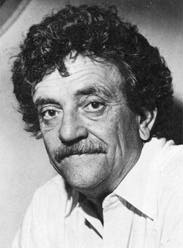 Vonnegut has typically used science fiction to characterize the world and the nature of existence as he experiences them. His chaotic fictional universe abounds in wonder, coincidence, randomness and irrationality. Science fiction helps lend form to the presentation of this world view without imposing a falsifying causality upon it. In his vision, the fantastic offers perception into the quotidian, rather than escape from it. Science fiction is also technically useful, he has said, in providing a distance perspective, “moving the camera out into space,” as it were. And unusually for this form, Vonnegut’s science fiction is frequently comic, not just in the “black humor” mode with which he has been tagged so often, but in being simply funny.”
Vonnegut has typically used science fiction to characterize the world and the nature of existence as he experiences them. His chaotic fictional universe abounds in wonder, coincidence, randomness and irrationality. Science fiction helps lend form to the presentation of this world view without imposing a falsifying causality upon it. In his vision, the fantastic offers perception into the quotidian, rather than escape from it. Science fiction is also technically useful, he has said, in providing a distance perspective, “moving the camera out into space,” as it were. And unusually for this form, Vonnegut’s science fiction is frequently comic, not just in the “black humor” mode with which he has been tagged so often, but in being simply funny.”
Filed under: "Dose of Inspiration" Video Tagged: author, books, fiction, Indie publishing, inspiration, Kurt Vonnegut, motivation, novel, plot, resource, science fiction, success, support, thinking, writer, writing








February 12, 2013
Things That Make My Day
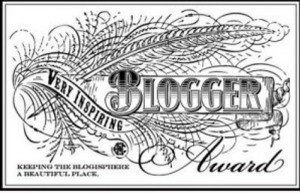 January was hot; cyclone ridden; flood ravaged and pretty dispiriting here in Queensland, Australia. It was really hard to get back into work mode; and I ambled along slowly. So when Rossandra White gave me this award, it was an appreciated lift! What made it even more special is that she didn’t give it out to the standard 15 people, she was choosy.
January was hot; cyclone ridden; flood ravaged and pretty dispiriting here in Queensland, Australia. It was really hard to get back into work mode; and I ambled along slowly. So when Rossandra White gave me this award, it was an appreciated lift! What made it even more special is that she didn’t give it out to the standard 15 people, she was choosy.
As I give out the Written Acts of Kindness Award and listed my favourite writer’s blogs in December, it’s not so easy to pass this award on. I already share the blogs I love. So while I get a new list together, please, go and hang out with Rossandra at: http://rossandrawhite.com.
As part of the award, I believe I am to share seven things about me.
I have been writing ever since I was a little girl. Before computers, my greatest treasures were my typewriters and they were used often.
I love mavericks! People who aren’t afraid to step outside the box and be themselves appeal to me.
Our cats are bilingual. No seriously, my husband is Canadian and the boys will not respond to calls for “dinner.” They only come running for “supper.”
I have played piano and organ since I was eight and am now learning acoustic guitar… and am very much looking forward to the point where it stops making my ears bleed!
I don’t care how many times I have seen them, I will always re-watch episodes of The Big Bang Theory, anything Terry Pratchett, the Goodies, Gilmore Girls, Star Trek Voyager, Star Trek The Next Generation and Long Way Down/Around.
 Miniatures such as Legoland, dolls houses and the like have always fascinated me. I think it is the aspect of re-creating something in a new medium that draws me in.
Miniatures such as Legoland, dolls houses and the like have always fascinated me. I think it is the aspect of re-creating something in a new medium that draws me in.I am a book addict. I had a few hundred listed as read on Goodreads, but I know there are dozens more I won’t remember reading until I have seen the book jacket.
Filed under: Personal Post Tagged: award

February 11, 2013
Three Warning Signs When Bringing Your Own Emotions into Fiction Writing
Have you ever been working on a first draft and written down something where you had to stop and say, “Whoa! Where did that come from?”
I’m not talking about being so overly impressed with your own ability to write prose, I’m talking about moments where characters give voice to an emotion you didn’t realize you had. You’re going through a tough time financially or emotionally (or finacially AND emotionally), and out of nowhere you’re confronted with a scene where a character screams out, “I just want to be able to stop worrying about how I’m going to pay for the kids’ lunches next week!”
Suddenly, you’re staring your beleaguered emotional self in the eyes when you thought you were just taking a little time to escape into your story. How did that happen?!
Of course, we know that our emotions don’t just disappear when we turn to writing, even if we wish they would. In fact, it’s our own emotions that make our writing more powerful. Art is a living, moving thing. Without emotion, you’re just writing instruction manuals. They may serve a purpose, but they sure ain’t fun to read.
Beta-Testing Real Life
 I’ve recently become enamored with the works of Cory Doctorow. Mr. Doctorow is a big sci-fi fan and a techie at heart, so his sensibilities especially appeal to me. In a recent interview with Wired, Doctorow stated that he used his characters to sometimes “beta-test” ideas that he had for handling problems. If the solution seemed feasible in his fictional universe, then perhaps the idea could work in real life.
I’ve recently become enamored with the works of Cory Doctorow. Mr. Doctorow is a big sci-fi fan and a techie at heart, so his sensibilities especially appeal to me. In a recent interview with Wired, Doctorow stated that he used his characters to sometimes “beta-test” ideas that he had for handling problems. If the solution seemed feasible in his fictional universe, then perhaps the idea could work in real life.
We face emotion in our writing every time we sit down at the computer, but we actually have the power to do something about the problems facing our characters. If we’re true to our stories and we take the process seriously, then we’ll have to come up with credible solutions.
I like to write big sci-fi adventures, but it would seem as if there isn’t much room to apply solutions to real life problems.
The same may be true for your writing. You may not be an Indiana Jones or a Lara Croft in your day-to-day living. You don’t live in Victorian England or the 24th century, so not all your proposed problems in your story will be relevant to your life.
But the emotions… Ah, yes, the emotions can apply. You can express your frustration, your sorrow, your joy, your child-like sense of enthusiasm. You can let those emotions flow on the page, and you can watch as they crash into the rocks of resistance. And then, you have to decide how to overcome that resistance. You can finally write the conversation you’ll have with the bully at your work or at your parent-teacher organization. You can write out honest responses to those who would doubt your dreams. You can share the depth of your sorrow with those who would just tell you to get over your hurts and ignore your past.
You can express yourself.
The Warning Signs
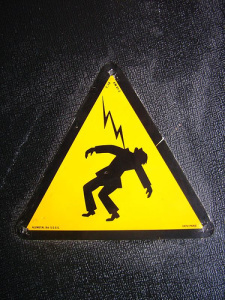 Before baring your emotions to the world, you’ll want to keep in mind a few words of caution. Emotions can either derail or enrich your story, so make sure you’re getting the most out of them.
Before baring your emotions to the world, you’ll want to keep in mind a few words of caution. Emotions can either derail or enrich your story, so make sure you’re getting the most out of them.
1. Keep your character’s motivation in mind when expressing emotion in your story. — Do your character’s emotions make sense, or are they just a reflection of what you’re feeling at the moment?
The problem with including personal emotion in story is that we can become too attached. We argue the emotions are “true,” so they have to stay there. Just remember, you’re writing a character. Your struggles still aren’t exactly the same, no matter how similar you are to your character.
Remember, the reader only knows about the world you present in your story. If you pull too much from your life, then you run the risk of leaving the reader without any sense of context in the life and world of the character.
2. Your emotional struggles may not be very entertaining. — Sure, your emotions are real, and you need to find a way to deal with them. Your readers may not be able to relate, or they might find the issue boring. I might struggle with coding a website for the day. I can try to convey that to my wife, but she just isn’t deeply interested. She cares about me, but the problems and, to some extent, the emotions connected don’t resonate.
Get an editor or proofreaders to help you figure out which emotions are the most important and the most resonant for your audience.
3. Watch out for the “everyone lives happily ever after.” — When we put our characters through a rigorous ordeal, rich with emotion and strife, we have to make sure that our characters earn the solution they find. As much as it would help in the storytelling process at times, tough problems rarely just “get better” all on their own. (That would make for some pretty boring stories. Right?)
We can’t make the solutions too simple for our characters after they’ve been pouring their hearts out through the course of the entire story. This may mean that your character gradually solves a problem. He or she may have to leave a situation or have a showdown with someone. Emotion means that things are building up, and there has to be some sort of release to allow emotions like peace and happiness to enter the picture.
Your Emotional Journey
Keep these warnings in mind, and your emotions can serve you in telling richer stories.
How has your experience been with tying in strong emotions to your writing? Do you feel like it got you off track? Have you ever been surprised by your emotions while writing? We’d love to hear from you in the comments below.
 Michael W. Roberts just finished the rough draft of his first novel and was surprised by how emotional he got over it. He works extensively in web media, and he blogs about writing, creativity, and communication on his site http://MichaelWRoberts.com
Michael W. Roberts just finished the rough draft of his first novel and was surprised by how emotional he got over it. He works extensively in web media, and he blogs about writing, creativity, and communication on his site http://MichaelWRoberts.com
This blog post is Copyright Michael W Roberts 2013. All rights are reserved Internationally. You may not reproduce it in any form, in part of whole, without the author’s prior written permission. That includes usage in forms such as print, audio and digital imaging including pdf, jpg, png etc. A fee may be requested for re-use if it is for a commercial venture. The train sign photo is owned by pj_in_oz on Flickr and the electrocution sign by r000pert. Used under a Creative Commons Licence.
Filed under: Guest Post, Writing Tagged: author, creativity, emotions, fiction, growth, Indie publishing, passion, problem solving, projection, stress management, success, warning signs, writer, writing




